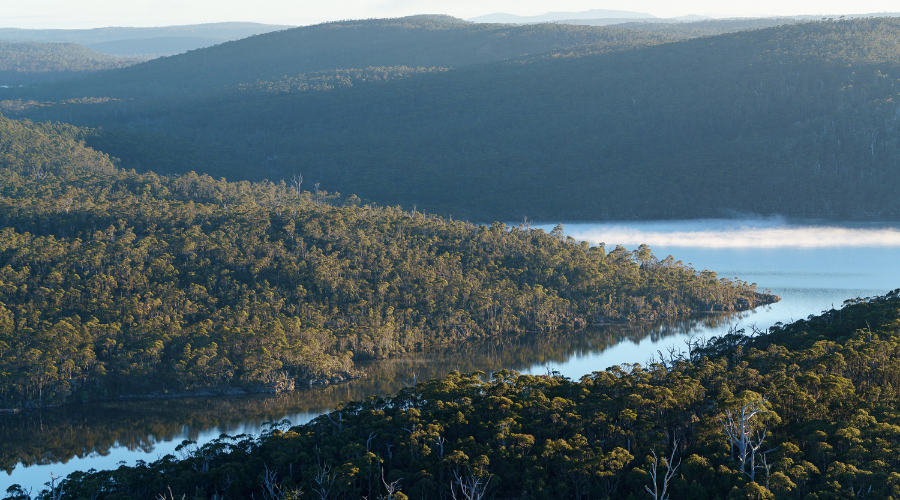Media Releases - 21 September 2022
Instead of Commonwealth Gov’t World Heritage stewardship, there is another Malbena EPBC shambles

The Wilderness Society (Tasmania) has today written to the Commonwealth Department of the Environment asking it to halt a shambolic assessment of the Lake Malbena development proposal under the Environment Protection and Biodiversity Conservation (EPBC) Act.
“The apparent EPBC assessment of the Lake Malbena development proposal is being run by the proponent, for the proponent’s benefit, with the public being invited to comment through this shambolic (so-called) process,” said Tom Allen for the Wilderness Society (Tasmania).
“The only reason the Lake Malbena proposal has limped this far is because of the parks privatisation policy supported by successive Tasmanian State governments.
“Like the Franklin Dam, the Commonwealth Government needs to assert its stewardship of the globally-significant Wilderness World Heritage Area (the world’s highest-rated World Heritage wilderness).
“The public record shows sustained and near-universal public opposition to this proposal for helicopter-accessed tourism in Walls of Jerusalem National Park.
“The Albanese Government has committed to international leadership on the protection of World Heritage natural and cultural values. Genuine Commonwealth oversight of development assessments proposed for World Heritage Areas is essential.
“The only information available for consideration is on the proponent’s website but these are documents that have been written by the proponent, praising the proponent’s own proposal.
“The public is then expected to put in submissions through the proponent’s own web portal, despite there being:
No objective information provided
No explanation of the apparent assessment process
No name, address or email required
No data protection guarantees
No guarantees about how this information will be used.
“This stinks. It’s an abuse of process. It’s an abuse of the EPBC Act and it cheapens the status of World Heritage and the Tasmanian Wilderness World Heritage Area—the world’s highest-rated World Heritage wilderness. And it plays the public for fools.
“The Tasmanian Rockliff Government must scrap its parks privatisation policy and swiftly return Crown land to the palawa people.
“But while the parks privatisation policy remains on the table, after a long list of examples of murkiness, subversion and unlawfulness, the public deserves due process, fairness and transparency,” said Mr Allen.
For further comment: Tom Allen, 0434 614 323
Background—information correct as of 2pm, Wednesday 21 September
Lack of information on the Commonwealth Environment Department’s website
Public being directed to partial and contentious information on the proponent’s own website
Clear abuse of due process and stark example of the absence of Community Rights
In 2018, in the Federal Court, the Wilderness Society challenged the Commonwealth (Morrison) Government’s decision not to require an environmental assessment of the Lake Malbena proposal.
We won the case, which found that the assessment process had been unlawful under the EPBC Act. This victory required the Commonwealth Environment Minister Sussan Ley (who replaced Melissa Price) to remake her decision.
Ms Ley changed the status of the proposal from “not a controlled action” to a “controlled action” because, as her ‘Statement of Reasons’ made clear and to her credit, she recognised the impact the proposal would have on wilderness and World Heritage values and natural values, such as the endangered wedge-tailed eagle.
Our Federal Court victory also meant that the EPBC assessment would have to be re-run if the proponent, Wild Drake, so wished, which is apparently the EPBC assessment referred to above.
‘Stopping the clock’ on EPBC assessments has precedent. In 2018, the Commonwealth Government stopped the first EPBC assessment of the Lake Malbena process due to lack of information provided by the proponent (see page 2, para 11, Statement of Reasons).